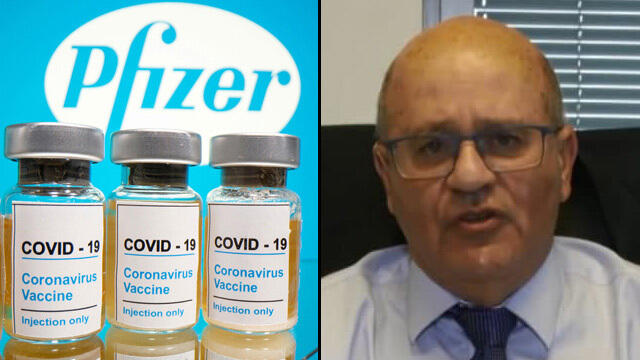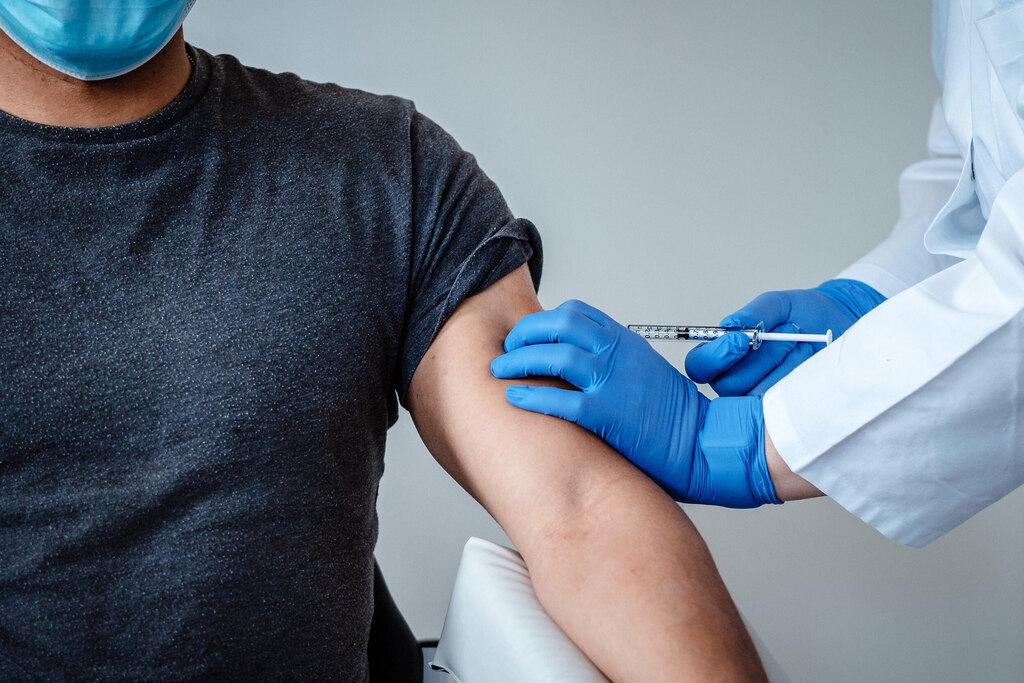Health Ministry Director-General Prof. Hezi Levy said on Sunday the ministry has no intention to promote mandatory vaccination for coronavirus when such a vaccine becomes available in Israel and would focus on expounding information for the public.
"I think most of the public will eagerly accept it and get vaccinated against this disease, which is making it difficult for all of us and maybe it will also allow us to return to a more normal life," Levy said.
"I may sound a little hesitant because clinical trials are not over yet, we still do not know what the long-term effects are. At the same time, I assume that there will be a part of the public, as with the other vaccines, that will object to it and I can only regret it and ask people to get vaccinated," he said.
3 View gallery


Pfizer's COVID-19 vaccine and Health Ministry Director General Hezi Levy
(Photo: Reuters, Avi Mandelbaum)
U.S. pharmaceutical company Pfizer Inc said last week its experimental COVID-19 vaccine was more than 90% effective, making the company and its German partner BioNTech SE the first drugmakers to release successful data from a large-scale clinical trial of a coronavirus vaccine.
Prime Minister Benjamin Netanyahu announced last Thursday that the first batch of Pfizer's newly developed coronavirus vaccine would arrive in Israel in January.
3 View gallery


Prime Minister Benjamin Netanyahu announcing an agreement with Pfizer to deliver its COVID-19 vaccine to Israel
(Photo: GPO)
Levy said that he was not sure Israel would receive the vaccine by January 2021 as promised by Netanyahu, but said it would arrive during next year's first quarter.
"I hope we would be able to vaccinate at-risk populations and medical teams," Levy said.
"We currently deal with the logistics behind importing and storing the vaccine because it must arrive under very certain conditions. Secondly, we are trying to define what populations will get inoculated first."
"I believe we will get the material just as Pfizer has committed to and as we signed on Friday, and I believe it will follow through," he said.
"It's not exactly an option. The contract features many other clauses as well iron out by the Justice Ministry, and by Health Ministry personnel for months under the auspices of the prime minister and health minister. We have signed a contract that ensures the optimal level of immunization.
"The citizens of Israel must understand that we have been engaging in long negotiations for days and nights with countries over the ocean and we did not put all our eggs in one basket. That is why we signed with other companies as well while risking budget and I hope this will pay dividends."
Levy said that Pfizer does have the ability to prioritize supplying its shot to other countries before Israel, but he believed that the company will honor the contract it signed with Jerusalem and abide by it.


